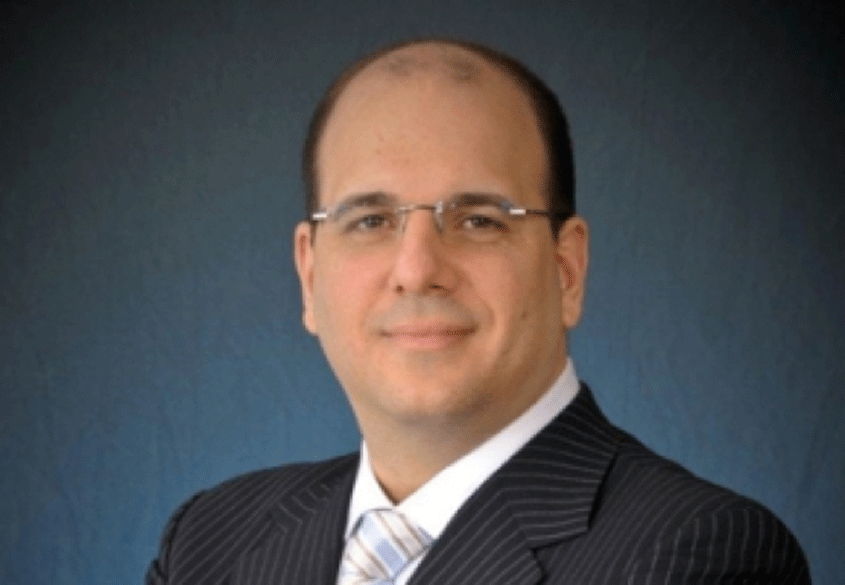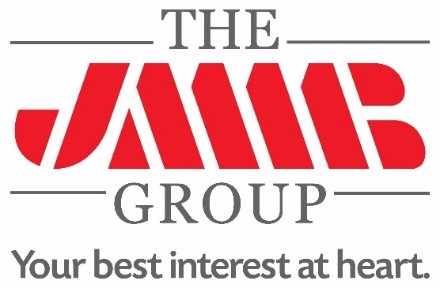 The Jamaican landscape has been hit with a series of rebranding initiatives following acquisitions of leading Jamaican companies by multinationals. These have include National Gas Stations, with Total, Life of Jamaica, rebranded Sagicor life Jamaica, Dehring Bunting and Golding – DBG, rebranded Scotia DBG Investments Limited, and United General Insurance to Advantage Insurance to name a few.
The Jamaican landscape has been hit with a series of rebranding initiatives following acquisitions of leading Jamaican companies by multinationals. These have include National Gas Stations, with Total, Life of Jamaica, rebranded Sagicor life Jamaica, Dehring Bunting and Golding – DBG, rebranded Scotia DBG Investments Limited, and United General Insurance to Advantage Insurance to name a few.
Why do companies rebrand?
In the book Why Johnny Can’t Brand (Portfolio 2005), authors Bill Schley and Carl Nichols explore when and why companies should rebrand. They argue that many companies rebrand prematurely or unnecessarily, shooting good brands in the foot instead of strengthening them.
The three most common catalysts for misguided rebranding are:
1. New executives trying to make their mark
2. The need for instant gratification trumping long term commitment
3. Organizational malaise/boredom.
According to Michael Teeling, an enterprise technology marketing consultant in Silicon Valley, Rebranding doesn’t always have to mean a complete overhaul. Rebranding can in fact have nothing to do with redesigning visual assets (logo, tagline) and instead focus entirely on operational or internal mindset changes. Rebranding is essentially an exercise in realignment. It is rediscovering the single unifying principle that aligns the organization with its customers. It means listening as those who bought tell you why you are special, why your offer resonates, and why your product is relevant. It is evolution more than revolution, but holds great power to re-energize a company.
Let’s take a look at some recent Jamaican rebranding
 On the horizon is the RBTT and RBC merger. There is no official word yet on the final brand choice, but it is expected that the Royal Bank of Canada, RBC brand name will be retained as a prefix and the country name used to specify the
On the horizon is the RBTT and RBC merger. There is no official word yet on the final brand choice, but it is expected that the Royal Bank of Canada, RBC brand name will be retained as a prefix and the country name used to specify the  operating country. This could for example see RBC Jamaica replacing RBTT Jamaica.
operating country. This could for example see RBC Jamaica replacing RBTT Jamaica.
 The brand Life of Jamaica (LOJ), the most visible name in the local life and health insurance industry is gone after more than 38 years in operation. LOJ rebranded Sagicor Life Jamaica gave effect to plans put in train years ago when the insurance giant was acquired by Barbadian financial conglomerate Sagicor. The rebranding was set to take place initially in 2004, but was delayed due to reasons that were not disclosed by the company, but was said to be linked to resistance by shareholders at losing a name that was seen then as distinctly Jamaican. In this case it was very clear on acquisition that the Sagicor brand was much stronger with more
The brand Life of Jamaica (LOJ), the most visible name in the local life and health insurance industry is gone after more than 38 years in operation. LOJ rebranded Sagicor Life Jamaica gave effect to plans put in train years ago when the insurance giant was acquired by Barbadian financial conglomerate Sagicor. The rebranding was set to take place initially in 2004, but was delayed due to reasons that were not disclosed by the company, but was said to be linked to resistance by shareholders at losing a name that was seen then as distinctly Jamaican. In this case it was very clear on acquisition that the Sagicor brand was much stronger with more international appeal and recognition than Life of Jamaica. Sagicor is an international company with a long history in the region, boasting financial stability, performance, and management for over 160 years.
international appeal and recognition than Life of Jamaica. Sagicor is an international company with a long history in the region, boasting financial stability, performance, and management for over 160 years.
Initial it was felt that after some 52 years Blue Cross operations would be acquired and rebranded under the Sagicor brand. However it was eventually disclosed that it was the operations that were acquired and merged into the existing Sagicor Life Jamaica Limited business. Sagicor was given 60 days by Blue Cross/Blue Shield, international owners of the brand, to finalise the transfer of the Jamaican business.
Rebranding is a costly undertaking, but the long term befits more often than not outweigh these costs. Rebranding following acquisition by non-Jamaican companies with much stronger international branding allows for the local brand adopting the international brand to get to the next level. This move to international branding status, is one of the main objectives of rebranding, however in the case of Red Stripe acquired by Diageo and Appleton acquired by Angostura, these were strong international brands and thus adopted and not changed out on acquisition.
There are also obvious benefits to changing a brand name; chief among them is the economies of scale to be enjoyed. In the area of mobile phone purchase for example companies such as Claro, rebranded from MiPhone, with a subscriber base of over 125 million is able to negotiate rates at much lower prices than its rivals offering strategic competitive advantages. These economies of scale feed into lower mobile handsets, call rates and other costs.
with a subscriber base of over 125 million is able to negotiate rates at much lower prices than its rivals offering strategic competitive advantages. These economies of scale feed into lower mobile handsets, call rates and other costs.

It’s difficult to argue with a provider that offers superior technology at cheeper rates and can out blitz you in the marketing department.
Miphone which was confined to Jamaica with a subscriber base of just under 300,000 was rebranded to Claro controlled by America Movil, one of the largest mobile telephony groups in the world, with approximately 125 million clients in 15 countries, including, Argentina, Chile, Colombia, El Salvador, Ecuador, United States, Guatemala, Honduras, Mexico, Nicaragua, Paraguay, Peru, Dominican Republic, Uruguay and Brazil.
Other benefits of rebranding from Miphone to Claro include access to technology. For example on 1 May 2008, Claro introduced the Video Call service thru its 3G GSM network into its Latin American markets. Customers are able to make calls using the video camera on their cell phone, to any other Video Call user. The service could places a new standard of calling in the island – being first introduced by Claro- enabling the users to make dual-sided video calls.
Draw backs to rebranding
 Local nuances and customs are important considerations when introducing a new brand or rebranding. There are some very strong views that these factors were not taken in consideration in the recent mobile rebranding and that the name changes were ill advised and mismatched for the Jamaican market. Claro (formerly Miphone) is Spanish for clear but Jamaicans speak English; whilst LIME (formerly Cable & Wireless) refers to a sour fruit and not relaxation in Trinidad & Tobago.
Local nuances and customs are important considerations when introducing a new brand or rebranding. There are some very strong views that these factors were not taken in consideration in the recent mobile rebranding and that the name changes were ill advised and mismatched for the Jamaican market. Claro (formerly Miphone) is Spanish for clear but Jamaicans speak English; whilst LIME (formerly Cable & Wireless) refers to a sour fruit and not relaxation in Trinidad & Tobago.
The strength of the brand.
Another option to rebranding is co-branding and the recent example is of Wisynco co-branding WATA with Ocean Spray. The Wisynco Group, whose aggressive marketing and distribution strategy helped make Jamaica, per capita, the market leader for Ocean Spray’s cranberry juices, added the Ocean Spray brand to its own line of purified water. The product, Ocean Spray WATA, was soft launched last year.
Sometimes early into a products or business life cycle there is a strategic need to rebrand to take advantage of prevailing market opportunities or to reposition the company to better attract more lucrative business as in the case of Carlton Savannah REIT that sought a new identity less than six month after it launched. Jamaica’s first and only real-estate investment trust, Carlton Savannah REIT Jamaica Limited opted for a name change to Kingston Properties Limited as Director Fayval Williams said the name change reflected plans for the company to build out a more diversified portfolio of real estate investments.
If you are considering Rebranding, make sure it’s not for one of the reasons Schey and Nichols cite above. A quick brand audit is a great way to get a read on if your brand is truly misaligned, not just fatigued. A reinvigorated brand can deliver more qualified sales leads & stronger customer loyalty, but brand equity needs time, dedication and maintenance to grow. Rebranding should not be undertaken lightly, and management support is a critical success factor. BM
Superclubs to rebrand Hedonism III
 SuperClubs, the world’s only super-inclusive resort group, goes after more fun under the Jamaican sun this fall.
SuperClubs, the world’s only super-inclusive resort group, goes after more fun under the Jamaican sun this fall.
To appeal to more travelers based on customer and industry feedback, Hedonism III in Runaway Bay will re-launch as SuperFun Beach Resort & Spa on October 14.
“Couples and singles (18 and over only) will enjoy fun-tastic amenities as well as more affordable rates, starting at $110 per person, per night, double-occupancy,” SuperClubs said in a release. “While the property is being re-vamped (August 22 to October 14), bookings will be honoured at the legendary Hedonism II in Negril, Westmoreland.
Successful re-branding
“With the successful Breezes re-branding in 2009, we’ve listened to our guests and travel partners yet again, and to meet their needs and to further support Jamaica’s growing tourism sector, we’re welcoming SuperFun Beach Resort & Spa to the SuperClubs family,” said Paul Pennicook, president of International Lifestyle, Inc, the worldwide representative of SuperClubs Resorts.
All-inclusive
Located on Jamaica’s famed north coast, the SuperFun Beach Resort & Spa will boast 210 rooms and 15 suites with expansive ocean and pool-front views, multiple dining options including Japanese, Italian and authentic regional cuisine, the world’s only see-through-bottom Jacuzzi, a four-story waterslide, three freshwater pools, and spa facilities.
An all-inclusive SuperFun Beach Resort & Spa getaway will continue to include: accommodations, all meals, unlimited local and international brand cocktails, myriad land and non-motorised water sports including equipment rental and instruction, entertainment, weddings, recreational activities and hotel taxes. Tipping is not allowed.
http://www.jamaica-gleaner.com/gleaner/20100702/news/news5.html
JIOB rebrands to redefine image
The Jamaica Institute of Bankers, a subsidiary of the Jamaica Bankers’ Association, has rebranded itself Jamaica Institute of Financial Services (JIFS) with the intention, its directors say, of correcting the perception that the training organization serves the banking community alone.
Darlene Jones, director of the institute, said that the training centre currently serves the wider financial sector and business community and that the organization’s new name reflects a mandate to offer its range of training services to the entire financial services sector, including securities dealers, insurance companies, and brokers.
The JIOB was established in 1977 as a joint venture between the Bank of Jamaica and local commercial banks. In 1999, the Jamaica Bankers’ Association assumed full responsibility for all its operations.
http://jamaica-gleaner.com/gleaner/20100704/business/business7.html
Comcast Needs a New Strategy, Not a New Brand
Xfinity Is Not Only a Silly Name, It’s the Wrong Move to Make
by Al Ries
Published: July 02, 2010
Comcast is in the process of rebranding some of its offerings to “Xfinity,” although the company name will remain Comcast.
Consumers in 11 markets will have a choice of Xfinity TV, Xfinity Voice and Xfinity Internet. Presumably, Comcast will soon be rolling out these high-speed, high-definition services to other prospects in the 39 states the company serves.
Is this a good move?
Lawyers will tell you the best trademarks are “coined” names such as Kodak and Xerox. So we are seeing a raft of coined brand names you can’t find in any dictionary, including Xfinity.
But wait a minute. There’s a well-known automobile brand called “Infiniti.” Isn’t Comcast worried about the confusion between the two? If not, did Comcast consider using Xonda or Xundai or Xoyota?
But there is a bigger issue here. Comcast is a large company with revenues last year of $35.8 billion. In addition to its cable, telephone and internet services, Comcast has cable programming interests (G4, Versus and The Golf Channel) and also owns entertainment channel E!
Not to mention the company’s 51% interest in NBC Universal, a joint venture with General Electric.
It makes sense for Comcast to be a pure “company” name like Procter & Gamble and have its services, programming and cable channels defined with their own brand names.
Internal vs. external
But what makes sense from an internal point of view often doesn’t make sense from an external point of view.
Comcast is in competition with five giant corporations, each of which is spending a small fortune trying to reach the same consumers Comcast is targeting. Here is 2009 advertising spending for Comcast and its five competitors.
- Verizon: $2.2 billion
- AT&T: $1.9 billion
- Sprint: $1.1 billion
- Comcast: $439 million
- DirecTV: $401 million
- Dish Network: $385 million
Money is not everything, of course. The message is important, too. But what message is Xfinity trying to communicate?
“More.”
As a typical TV commercial points out, Xfinity offers “more choice, more control, more speed, more HD than ever before.” Other commercials boast about Xfinity’s “fastest internet speeds” and “triple the HD channels.”
But what are consumers supposed to think when they are bombarded by the big three big networks?
- AT&T: “Fastest 3G network.”
- Verizon: “Five times more 3G coverage.”
- Sprint: “4G network.”
One axiom of marketing is that confusion always benefits the leader. If the consumer can’t make sense out of conflicting claims, he or she is more likely to go with one of the leaders.
That’s certainly what’s been happening in cellphones. In the first quarter of the year, Verizon had 92 million subscribers. AT&T had 86 million. And Sprint had just 47 million.
Old African proverb: When elephants fight, it’s the ants that take the beating. Sprint is getting killed.
In the past three years, both AT&T (10.2% net profit margin) and Verizon (7.4%) have been highly profitable. But Sprint Nextel Corporation, with revenues of $108 billion, managed to lose $34.8 billion.
Brand vs. category
What’s Comcast doing playing in this game? That’s a classic marketing mistake. Comcast is trying to fight a branding war with its heavily-hyped Xfinity brand when it should have been fighting a category war.
With about 24 million subscribers, Comcast is the leading basic cable TV provider, well ahead of No. 2 Time Warner, which has about 14 million subscribers.
Instead of introducing a marvelous new TV, internet and phone service called Xfinity, Comcast, in my opinion, should have been telling its prospects why should buy digital services from a cable company.
Why is cable better than satellite or cellphone towers? I have no idea, but I suspect that cable might be more reliable than the alternatives.
Look at the success of DirecTV and Dish Network. Even though both companies are much smaller than Sprint, they are both profitable with net profit margins in the last three years of 6.8% for DirecTV and 6.7% for Dish Network.
My feeling is that both of these companies are successful because their satellite services have captured the public’s imagination, not because they offer “more” — more choice, more control, more speed, etc.
As a DirecTV subscriber, I’d be hard pressed to name any specific reason for selecting the service, except that DirecTV is the leader in satellite.
Leadership is the most important attribute a brand can own. It’s usually better to be the leader in a small pond rather than an also-ran in a big pond.
The top two brands in every category usually suck out all the profits, leaving nothing but crumbs for the also-rans.
But then, who thinks category anyway? Today, it’s nothing but brands, brands, brands.
Many well-known brands are not associated with any specific category. Many companies have taken brands that used to stand for something and turned them into master brands that don’t stand for anything.
What category is a Chevrolet?
What category is a Sony?
What category is an Olay?
A quirk in the laws
What confuses many marketers is a quirk in the laws of marketing. What leaders can do doesn’t necessarily apply to No. 2 or No. 3 brands.
We have warned repeatedly, for example, about the dangers of line extension. Yet the truth is, the law applies more to laggards than leaders.
McDonald’s has been line-extending its menu for decades, but still remains a fast-food leader. Burger King, on the other hand, has been following in McDonald’s footsteps, from chicken to breakfast to gourmet coffee, with little to show for its line-extension efforts.
On an average sales-per-unit basis, Burger King lags behind the other hamburger chains.
- McDonald’s: $2,158,900
- Whataburger: $1,653,100
- Jack in the Box: $1,421,100
- Steak n Shake: $1,416,100
- White Castle: $1,383,400
- Carl’s Jr: $1,356,100
- Wendy’s: $1,352,800
- Burger King: $1,288,600
When we worked for Burger King, the CEO at the time told me we would be heroes if we fixed two things: breakfast and chicken.
“But your signs say Burger King,” I replied. “Why don’t you focus on hamburgers? Specifically, flame-broiled hamburgers.”
Back then, many Burger King managers thought the hamburger was passé. The future belonged to chicken, fish, and even veal parmigiana.
Here it is, decades later, and the fast-food outlets that seem to be capturing the public’s attention are the “better burger” places, like Five Guys, Smashburger, Elevation Burger, Mooyah Burgers & Fries, M Burger, Boardwalk Fresh Burgers & Fries, Meatheads Burgers & Fries and Bobby’s Burger Place.
Nation’s Restaurant News calls the better burger “the fastest-growing food-service category at a time when most other types of concepts have put hopes of growth on hold.” According to Technomic, sales last year at the better-burger chains were up 18%.
Where was Burger King when all the better-burger action was taking place? They apparently were busy introducing their latest line extension, the fire-grilled ribs eight-piece combo meal for $8.99.
Focus vs. line extensions
Focus is what makes a brand successful, not line extensions.
Look at the success of Chick-fil-A, a brand focused not just on chicken, but on “chicken sandwiches.”
Even though the chain is closed on Sunday (for religious reasons), the average Chick-fil-A unit does $2 million a year in revenues, some 67% more than the average Burger King.
On June 7 of this year, Chick-fil-A introduced a spicy-chicken sandwich, its first new sandwich since 1989. That was 21 years ago.
In many ways, marketing is a category issue and a simple test will tell you if your brand is headed in the right direction.
- What category is Chick-fil-A? Chicken sandwiches.
- What category is Five Guys? Better burgers.
- What category is DirecTV? Satellite networks.
- What category is Xfinity? Who knows?
Leaders like McDonald’s can violate the laws of marketing and seemingly get away with it. But not the also-rans.
| ABOUT THE AUTHOR |
Al Ries is chairman of Ries & Ries, an Atlanta-based marketing strategy firm he runs with his daughter and partner Laura.
http://adage.com/columns/article?article_id=144796 |

 Businessuite News24 International2 years ago
Businessuite News24 International2 years ago
 Feedback & What You Think2 years ago
Feedback & What You Think2 years ago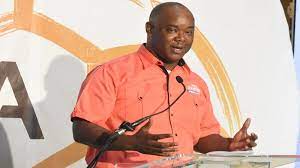
 Marketing & Advertising2 years ago
Marketing & Advertising2 years ago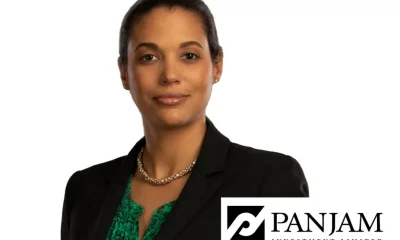
 Businessuite Women1 year ago
Businessuite Women1 year ago
 Businessuite 50 Power and Influence1 year ago
Businessuite 50 Power and Influence1 year ago
 Leadership Conversations1 year ago
Leadership Conversations1 year ago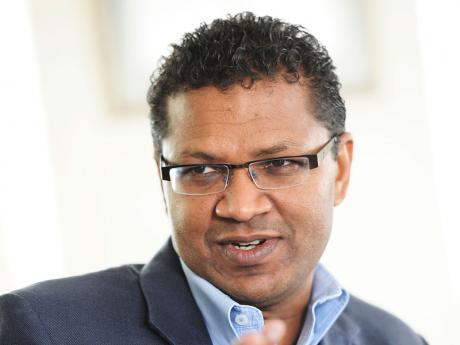
 Businessuite Markets2 years ago
Businessuite Markets2 years ago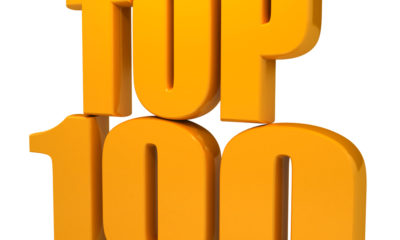
 RANKING7 months ago
RANKING7 months ago

















